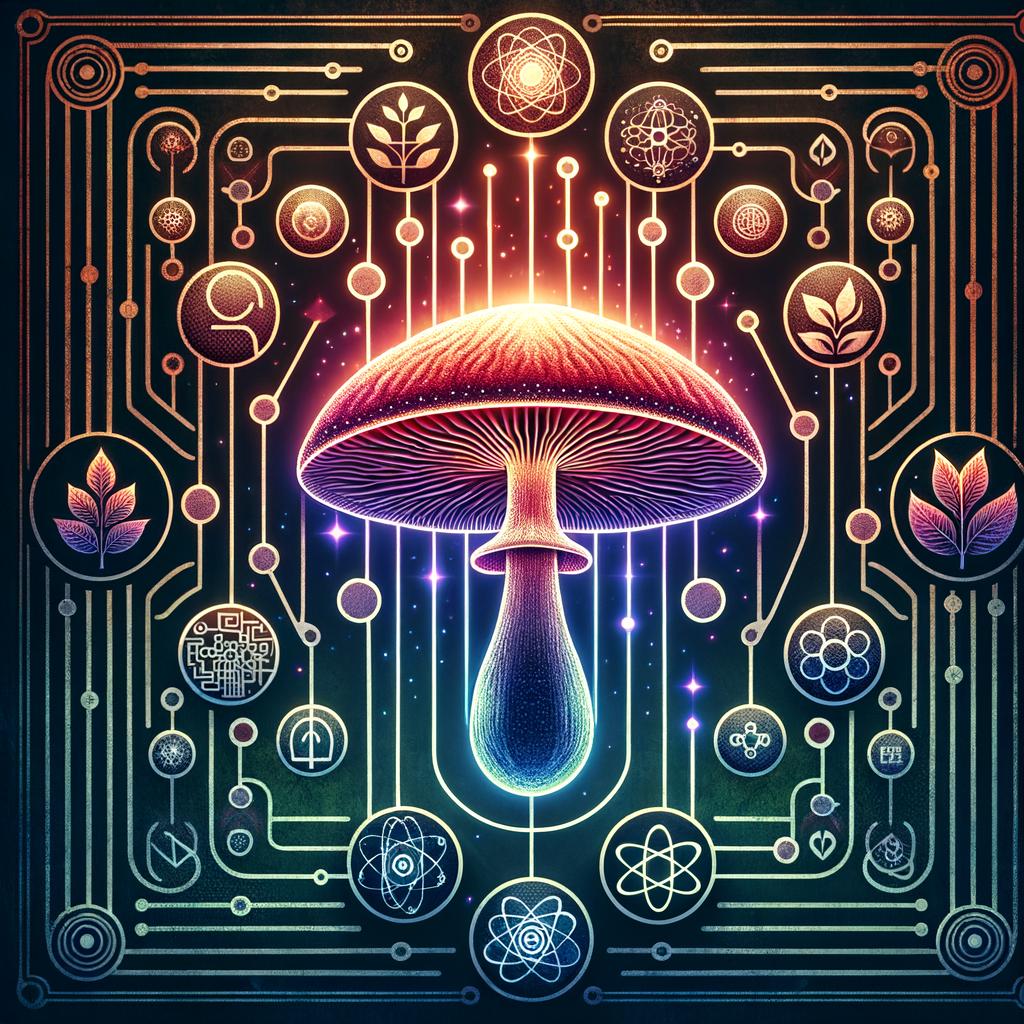
Unveiling the Enigma: What Is Mushroom Nootropics?
Your curiosity has led you to the intriguing world of mushroom nootropics! So, what are mushroom nootropics? To put it simply, they are dietary supplements derived from mushrooms, known for their positive effects on brain health and cognition. Now, before the suspense spirals out of control, let’s delve deeper into this fascinating subject. In this detailed guide, we will dissect the many dimensions of mushroom nootropics, from their benefits to their various types, demystifying this celebrated corner of the wellness universe along the way.
Origin of Mushroom Nootropics: A Slice of the Fungi Kingdom
The medicinal power of mushrooms stretches back centuries, particularly in Eastern medicine. Mushroom nootropics originate from a coterie of special fungi known for their cognitive-enhancing properties. But it’s not every mushroom that makes the cut! Within the sprawling fungal kingdom, certain mushrooms stand out for their brain-boosting advantages – Lion’s Mane, Reishi, Chaga, and Cordyceps are among the heroic players in this arena. Each varies in its impact on the brain, yet they all share the spotlight for their role in promoting cognitive health.
Master Mushrooms: A Power-Packed Quartet
Our quartet of mushroom nootropics deserves a closer look. Lion’s Mane, with its illustrious name and equally impressive properties, reigns for its neuroprotective benefits. Reishi – the proverbial mushroom of immortality – is famed for stress reduction and improving sleep quality. Chaga, the wild child of this fungal family, works as an antioxidant powerhouse, while Cordyceps, a peculiar parasitic species, enhances energy levels and exercise performance.
Benefits: Unmasking the Brain-Boosting Power of Mushroom Nootropics
Mushroom nootropics do much more than make your pasta dish delectable—they’re also a brain’s best friend! Gifted with neuroprotective properties, they guard brain cells like a Trooper, counteracting cognitive decline and sharpening focus.
The Nootropic Neuromancers
Fungi are nature’s nurturers, nurturing brain health with unwavering dedication. In the maze of mental acuity, mushroom nootropics function as neuro-navigators, optimizing focus, enhancing memory, and promoting a calm and composed state. Each serves as a cog in the cognitive machine, making the gears of mental performance spin smoothly.
The Mushroom Advantage: More Than a Cognitive Catalyst
The mushroom muse doesn’t stop at cognition—mushroom nootropics boost more than brain power. They’re an immune system’s ally, a skin’s savior, and provide an overall wellness uplift. This multi-faceted marvel does more than hit the right ‘shroom notes; it orchestrates a mind and body symphony.
The ‘Shroom Symphony
Think of mushroom nootropics as an orchestra conductor, harmonizing different bodily functions. Besides brain health, these supplements bolster the immune system, balance hormones, deliver potent antioxidants, promote smooth skin, and aid stress management. It seems there really isn’t much that these marvelous mushrooms can’t do!
Navigating the Conclusion: The Power of Mushroom Nootropics
In short, mushroom nootropics aren’t your average dietary supplements; they’re cognitive catalysts, wellness warriors, and overall health heroes – a truly outstanding example of nature’s finest at work.
Frequently Asked Questions about Mushroom Nootropics
1. Are mushroom nootropics safe to consume?
While generally safe, it’s always prudent to consult a healthcare provider before incorporating new supplements into your routine.
2. How do mushroom nootropics improve brain health?
Mushroom nootropics contain active compounds that promote neural growth, improve focus, and enhance memory.
3. Which mushrooms are typically used in nootropics?
Commonly used mushrooms include Lion’s Mane, Reishi, Chaga, and Cordyceps.
4. Can I consume mushroom nootropics if I have a mushroom allergy?
Those with mushroom allergies should refrain from consuming mushroom nootropics and consult their healthcare provider for alternatives.
5. Are there any side effects associated with mushroom nootropics?
While generally well-tolerated, some may experience digestive discomfort. Always listen to your body and seek medical advice when needed.


0 comments